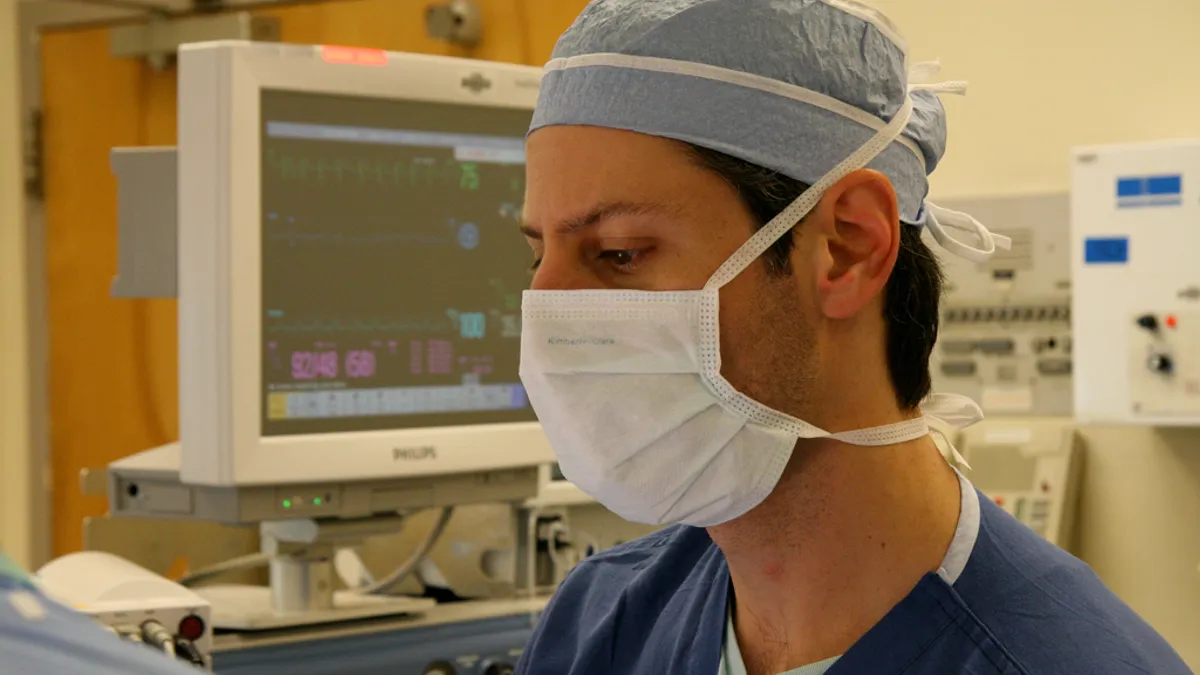Dive Brief:
- A survey of urologists by analysts at Jefferies found two new technologies for treating benign prostatic hyperplasia (BPH), one from Boston Scientific and one from Teleflex, are seeing strong adoption in the market.
- The survey of 50 high-volume urologists showed Teleflex’s UroLift device accounted for 15% of the doctors’ procedure volumes to treat BPH, also called an enlarged prostate gland, while Boston Scientific’s Rezum device was used in 10% of procedures.
- Both treatments are poised for significant growth, according to Jefferies. Urologists indicated monthly utilization for both technologies is expected to increase by three times the current levels over the next two years.
Dive Insight:
Prostate enlargement is common among older men, though its cause is not well understood. BPH is a non-cancerous increase in the size of the prostate that can lead to weak urine flow due to pressure on the urethra. BPH affects about 50% of men between the ages of 51 and 60 and up to 90% of men older than 80, according to the National Institutes of Health.
Medications help some BPH patients but are ineffective for others, or may cause side effects such as fatigue or sexual dysfunction. Alternatively, researchers have developed minimally invasive procedures that typically involve heating the excess prostate tissue to destroy it.
Boston Scientific’s Rezum system uses water vapor created by applying radiofrequency energy to destroy the excess prostate tissue obstructing urine flow. The Teleflex UroLift device, by contrast, does not require destruction of tissue. It uses small implants permanently placed to hold the enlarged prostate tissue out of the way and increase the opening of the urethra.
According to the Jefferies survey, UroLift is gaining market share from all other BPH treatments including drug therapy, while Rezum is gaining share from surgery and ablation procedures. UroLift is expected to account for 25% of BPH procedures in the next two years among the urologists surveyed, and use of Rezum is projected to double to 20% of procedures.
The analysts said sustainability of symptom improvement and lower incidence of sexual dysfunction were driving demand for the UroLift treatment. For Rezum, physician ease of use and more permanent tissue disruption were cited as reasons for growing adoption.
Teleflex acquired the UroLift technology through its $1.1 billion purchase of NeoTract in 2017. Boston Scientific picked up Rezum earlier this year through the acquisition of NxThera, in which it already owned a minority stake, in a deal valued at $406 million.










